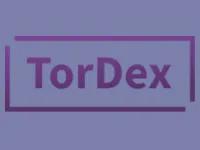How the Dark Web Protects Privacy in an Increasingly Transparent World?
In an era where personal data is increasingly exposed and tracked online, the Dark Web has become a crucial tool for those seeking privacy and anonymity. The Dark Web, a part of the internet that is intentionally hidden and requires special software like Tor to access, operates outside the view of traditional search engines and mainstream websites. This hidden layer offers an alternative to the often intrusive and surveillance-heavy nature of the Surface Web, where user activities are frequently monitored, recorded, and monetized. One of the primary ways the Dark Web protects privacy is through encryption and anonymization protocols. Tor, which stands for The Onion Router, is a decentralized network that routes users’ internet traffic through multiple layers of encryption across a series of volunteer-operated servers. This process, called onion routing, masks the user’s IP address and makes it extremely difficult for anyone, including governments, ISPs Internet Service Providers, or even malicious actors, to track their online activities. By bouncing data through several nodes and encrypting it at each stage, Tor makes it highly challenging to trace the source or destination of any given communication.

Another key feature of the Dark Web’s privacy protection is the use of hidden services, which allows websites to operate without revealing their physical server locations. These services typically use The onion domain suffix, which is not accessible by traditional browsers and adds an extra layer of anonymity to both the website owner and the visitors. For individuals concerned about their digital footprint, this feature is crucial, as it allows both the transmission and receipt of data without the conventional vulnerabilities of standard web hosting. The tordex search Dark Web also offers users greater control over their data. Unlike mainstream websites, which often collect and monetize personal information through tracking technologies like cookies, many Dark Web platforms do not require personal details for access or interaction. This lack of data collection allows users to engage in activities without exposing their identities, whether they are communicating in forums, browsing content, or making transactions.
Moreover, cryptocurrency, particularly Bitcoin and its privacy-focused counterparts, is often used as the primary medium of exchange, further distancing transactions from traditional financial systems that require identity verification. However, while the Dark Web provides enhanced privacy protections, it is not without risks. The anonymity that it offers can also be exploited by cybercriminals and malicious entities. Illicit activities, such as the sale of illegal goods, hacking tools, and personal data, are common on the Dark Web. This duality makes it a double-edged sword: while it provides privacy and security for those seeking to evade surveillance, it also creates a platform for unlawful activities. In conclusion, the Dark Web plays a critical role in protecting privacy in an increasingly transparent world. Through its use of encryption, anonymization, and decentralized technology, it offers individuals a refuge from the pervasive surveillance of the Surface Web. However, as with any tool, its use must be approached cautiously, as it can be a haven for both privacy-conscious users and criminal elements alike.



